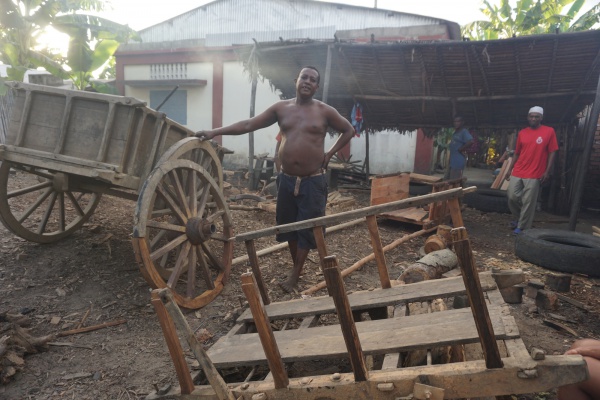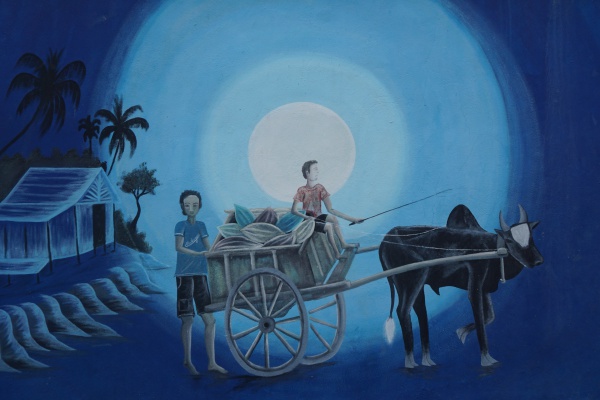Zebu cart
It's sunrise over the Sambirano Valley when a small traffic jam on the bridge leading into the town centre of Ambanja builds up. The congestion, however, is not caused by cars but by zebu carts. The drivers and passengers of these slow-moving ox-powered vehicles are on their with crops from the countryside to sell at the town's bazary.
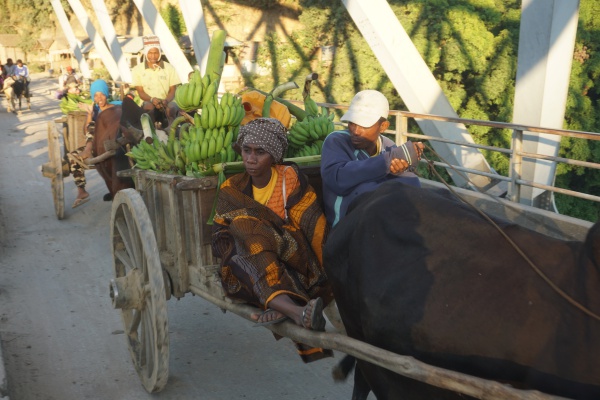
| ||
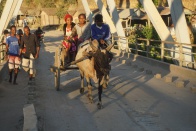
|

|

|
Zebu carts, known as Charrettes à zébu, are common in and around Ambanja and across much of the country.
Dozens of workshops produce charrettes in Ambanja. One of them is led by Mr Theodore, who, along with his team of six skilled carpenters, manually assembles around 50 charrettes per year without using electrical power tools.
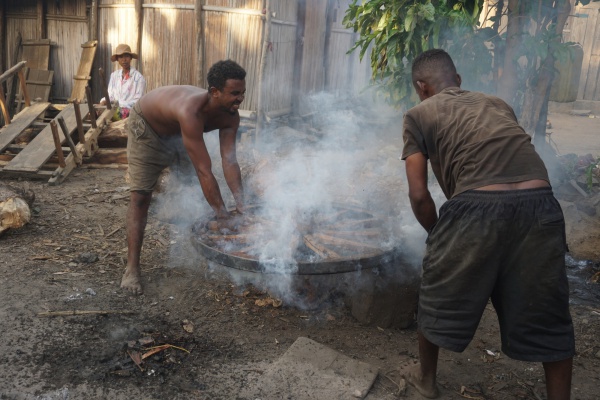
| ||
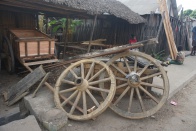
|
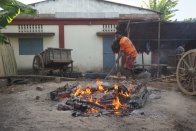
|
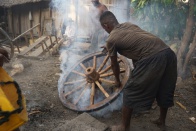
|
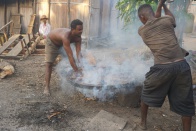
|
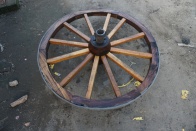
|
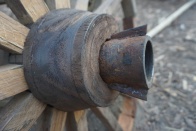
|
The design and model are always the same: A simple two-wheeler that easily attaches to one or more zebus.
These charrettes remain as practical and relevant among farmers today as they have for hundreds of years.
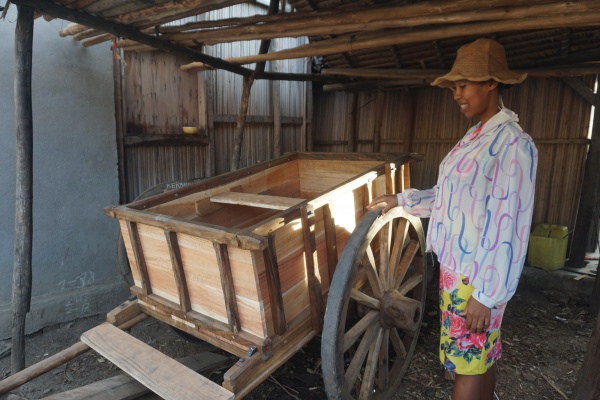
| ||
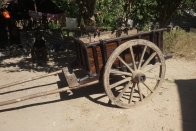
|
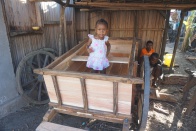
|
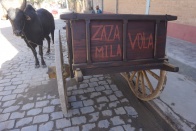
|
A charrette takes about one week to build and costs 1,800,000 Ariary (USD 400).
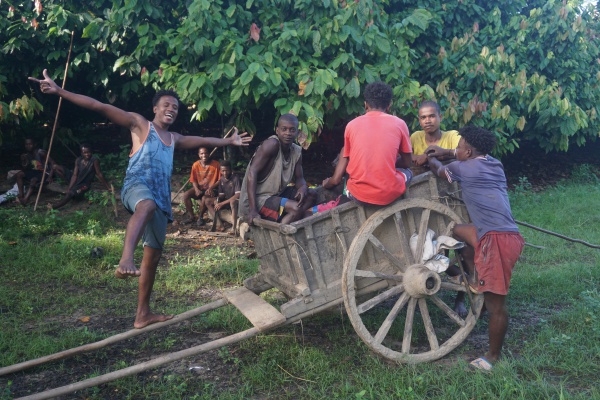
| ||
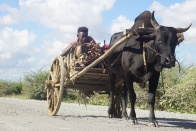
|
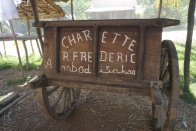
|
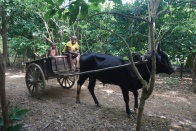
|
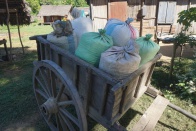
|

|
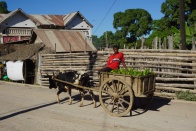
|

|
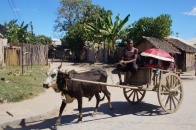
|
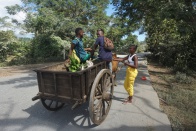
|
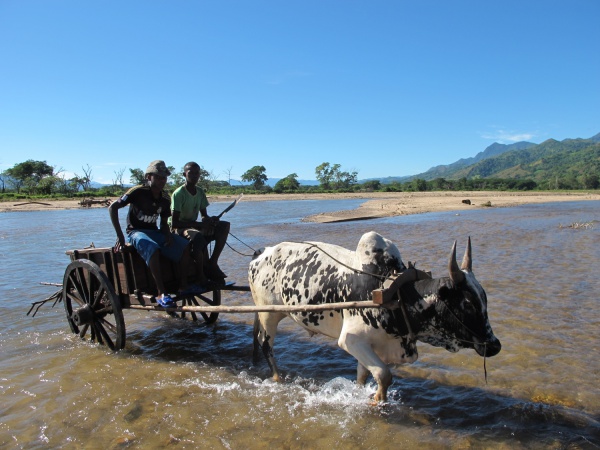
| ||
Thanks to the thousands of Malagasy farmers for preserving the environment by their traditional mode of transportation.
Additional information
View more Zebu cart photos
